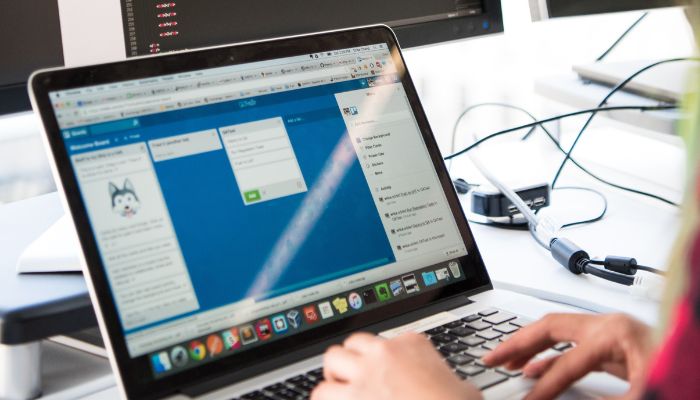
In today’s world, entrusting the care of loved ones to another individual is a significant decision. One of the primary tools to ensure the safety and well-being of those under care is the caregiver background check. This process delves into the history of potential caregivers, ensuring they have a clean record and are trustworthy.
A caregiver background check is a comprehensive screening process that reviews the history of potential caregivers. It ensures they have a clean record, verifying their trustworthiness and suitability for the role, providing families with peace of mind about the safety of their loved ones.
From understanding what these checks entail, to knowing legal considerations, you’ll find everything you need here. By the end, you’ll be able to navigate this process with confidence, ensuring your peace of mind. Let’s illuminate the path towards finding a reliable, trustworthy caregiver.
Table of contents
- Understanding Caregiver Background Checks
- Why Caregiver Background Checks Matter?
- Components of a Caregiver Background Check
- Legal Considerations and Privacy
- Best Practices for Running Caregiver Background Checks
- Importance of Ongoing Checks After Hiring
- How to Conduct Caregiver Background Checks?
- Finding Reliable Background Check Services
- Conclusion
- FAQs (People Also Ask)
- What is a Caregiver Background Check?
- Why is Electronic Fingerprinting used in Caregiver Background Checks?
- How do Professional Consumer Reporting Agencies (CRA) enhance the background check process?
- What is the Adverse Action Process in the context of caregiver background checks?
- Are there specific Background Check Requirements for caregivers?
Understanding Caregiver Background Checks

A Caregiver Background Check is a comprehensive review conducted to ensure the safety and well-being of those under the care of professionals in the caregiving industry. This check delves into an individual’s Criminal History, Criminal Record, and other relevant records to determine their suitability for caregiving roles.
The primary purpose of Caregiver Background Checks is to protect vulnerable populations, such as the elderly, children, and those with disabilities, from potential harm. By examining an applicant’s past, employers can make informed decisions and prevent hiring individuals with a history of Criminal Conviction or those who might pose a risk to their clients. This check often includes a Criminal Background Check, Driving Records, Credit Check, Education Verifications, and sometimes even a Pre-Employment Drug Screening.
Various Health Agencies, Care Aide Organizations, and private employers mandate these checks. For instance, Health Care Facilities and Home Health Aides organizations require rigorous checks given the sensitive nature of their services. Department Of Health in many states has set guidelines for these checks, ensuring that caregivers have no history of abuse, neglect, or any other criminal activity that might jeopardize the safety of their clients.
Types of caregivers that typically undergo these background checks:
- Home care aides: Professionals who assist clients with daily activities in their homes.
- Personal Care Aides: Caregivers who provide assistance with everyday tasks but not medical care.
- Elderly care aides: Specialized caregivers who cater to the needs of older adults.
- Hospice care workers: Those who provide end-of-life care, ensuring comfort and support for terminally ill patients.
- Childcare workers: Individuals who take care of children in various settings, such as daycare centers, preschools, and private homes. Childcare background checks are essential to ensure the safety and well-being of children under their care.
In conclusion, a Caregiver Background Check is an essential tool for ensuring the safety and well-being of clients in the caregiving industry. Similarly, church background checks play a pivotal role in maintaining the sanctity and safety of religious institutions. Both provide a thorough assessment of an individual’s past, ensuring that they are fit for their respective roles.
Why Caregiver Background Checks Matter?

Legal Implications and Requirements:
Caregiver Background Checks are not just a matter of safety; they are often a legal necessity. Many states and countries have laws and regulations that mandate thorough background checks for caregivers. These checks ensure that caregivers meet the Background Check Requirements set by Health Agencies and other governing bodies. Non-compliance can lead to severe legal repercussions for care institutions or families hiring caregivers. Moreover, Law Enforcement Agencies may get involved if a caregiver with a negative Criminal Record History is found providing care, especially if an incident occurs.
Safety Concerns for Vulnerable Populations:
The primary purpose of these checks is to ensure the safety of some of society’s most vulnerable members. Whether it’s children, the elderly, or those with disabilities, these individuals often rely heavily on their caregivers. Without a thorough Caregiver Background Check, there’s a risk of exposing them to individuals with a history of Physical Abuse, Sexual Abuse, or other harmful behaviors. Caregivers For Family Members or those in Health Care Facilities have Direct Contact with their clients, making the need for these checks even more critical.
Alarming Statistics on Abuse and Exploitation:
The importance of these checks is further underscored by some harrowing statistics. Studies have shown that hundreds of thousands of elderly individuals face abuse, neglect, or financial exploitation every year. Without proper Background Screening, there’s a risk of hiring caregivers who might have been perpetrators of such acts in the past. By ensuring a thorough Criminal Record Background Check, institutions and families can significantly reduce the risk of such incidents.
In essence, Caregiver Background Checks are crucial not just for legal compliance but, more importantly, to ensure the safety and well-being of those under the care of professionals in the caregiving industry.
Components of a Caregiver Background Check

Criminal Record Check:
One of the primary components of a Caregiver Background Check is the Criminal Record Check. This check delves into an applicant’s Criminal History to identify any Criminal Convictions, Misdemeanor Convictions, or Federal Crimes. It provides a comprehensive view of the applicant’s past, ensuring they have not participated in any activities that might jeopardize their clients’ safety.
Sex Offender Registry Search:
Given the sensitive nature of caregiving roles, it’s crucial to ensure that caregivers have no history of sexual offenses. The Sex Offender Registry Search checks the applicant’s name against national and state sex offender registries. This ensures that they haven’t been involved in any sexual crimes or offenses, providing an added layer of safety for clients.
Abuse and Neglect Registry Search:
Caregivers often work with vulnerable populations, making it essential to ensure they have no history of abuse or neglect. The Abuse and Neglect Registry Search checks for any records of the applicant in Abuse Registries and Neglect Registries. This ensures that they haven’t been involved in any incidents of physical or emotional harm to their past clients.
Professional License Verification:
Given the specialized nature of many caregiving roles, it’s crucial to verify the applicant’s professional credentials. Professional License Verification checks the validity of the caregiver’s Professional Licenses, their License Type, and their Current Status. This ensures that they are qualified for the role and have met all the necessary training and certification requirements.
Employment Verification:
We conduct Employment Verification to gain a comprehensive view of the applicant’s work history. This process checks the applicant’s past employment records to confirm they have the necessary experience and have not been involved in any incidents at their previous workplaces. It also verifies the Caregiver Applicant’s tenure, roles, and any feedback from past employers.
Education Verification:
Given the importance of proper training in caregiving roles, Education Verification is a crucial component. This verifies the applicant’s educational qualifications, ensuring that they have undergone the necessary training and education for their role. It checks the validity of their degrees, certifications, and any Training Materials they might have undergone.
Driving Record Check (MVR):
For caregivers who might be required to transport their clients or run errands on their behalf, a Driving Record Check or Motor Vehicle Records (MVR) check is essential. This ensures that they have a valid driver’s license, no history of serious traffic violations, and can safely transport their clients if needed.
Pre-Employment Drug Screening:
Given the sensitive nature of caregiving roles, it’s crucial to ensure that caregivers are not under the influence of any illicit substances. Pre-Employment Drug Screening checks for the presence of drugs in the applicant’s system. This ensures that they are fit for the role and can provide care without any impairments.
Legal Considerations and Privacy
You should bear in mind that while conducting a caregiver background check, you must balance the need for thoroughness with respect for the candidate’s legal rights and privacy. Background checks must be conducted legally and ethically, while also ensuring the safety and security of those in your care.
Consider these key points:
- Always obtain written consent before initiating a background check.
- Comply with federal and state laws regarding access to and use of criminal history.
- Contact a law enforcement agency if you’re unsure about accessing certain information.
- Seek legal advice if you have legal questions about the process.
- Respect the privacy and confidentiality of all candidates.
Best Practices for Running Caregiver Background Checks

In today’s world, ensuring the safety and well-being of vulnerable individuals is paramount. As such, when hiring caregivers, it’s essential to follow best practices to ensure that the individual is not only qualified but also trustworthy. Here’s a closer look at the best practices for running caregiver background checks:
Importance of Comprehensive Checks
At the Time Of Hire, it’s crucial to conduct a thorough background check. This not only includes a basic Fingerprint Check but also delves deeper into the candidate’s history.
Care Background Checks should be comprehensive, covering various aspects of an individual’s past. For instance, Check At Time of application should include Credit Histories to ensure financial responsibility. More severe issues like Felony Convictions or involvement in Healthcare-Related Fraud can be red flags, indicating potential risks.
Using a Professional Consumer Reporting agency can help in accessing a Listing Of Individuals with past discrepancies. It’s also essential to verify the Current Address of the applicant to ensure the accuracy of the information provided.
Recommendations for Additional Screenings
Beyond the basic checks, Screening For Caregivers should also encompass Additional Searches. These might include checks into Unlawful Manufacture of substances, Financial Misconduct, or any involvement in crimes against vulnerable populations, especially if they had Contact With Patients in previous roles. Care Aide Background Checks are especially stringent, given the close interaction these professionals have with their clients.
For a more in-depth analysis, some employers also opt for Private Investigators or use Electronic Fingerprinting methods. These can provide a more detailed insight into an individual’s past, beyond what traditional checks might reveal.
Requirements For Caregiver Background checks can vary by state, but it’s always a good idea to go above and beyond the minimum to ensure community safety. For instance, a Fingerprint Background Check Service can provide insights that a simple Name-Based Search or Address Locator Search might miss.
Importance of Ongoing Checks After Hiring
Once a Caregiver Candidate is hired, the process shouldn’t stop there. Ongoing screening is crucial. Situations change, and an individual’s status might shift after they’ve been hired.
Regular checks, perhaps annually or bi-annually, can ensure that no new issues have arisen since the initial hiring process. This is especially important for roles that have Access To Clients on a regular basis, such as Personal Care Workers or Care Agency Worker.
In conclusion, while the Background Check Process might seem daunting, especially with the myriad of terms like Background Check Process Flowchart or Caregiver Background Check Requirements, it’s a necessary step in ensuring the safety of those in care. By following best practices and going beyond the minimum requirements, employers can ensure they’re hiring the best possible candidates for the job.
How to Conduct Caregiver Background Checks?

Ensuring the safety and well-being of those under care is of utmost importance. Conducting thorough and compliant caregiver background checks is a critical step in this process. Here’s a guide on how to effectively carry out these checks:
Steps to Follow for a Thorough and Compliant Background Check:
- Initiate at Time Of Hire: Start the Background Check Process as soon as you consider hiring a caregiver. This ensures that you have ample time to review and assess the results.
- Fingerprint Check: Begin with an Electronic Fingerprinting process. This provides a comprehensive look into the individual’s criminal history at both the County Level and Federal Level.
- Additional Checks: Beyond the basic Fingerprint Check, delve into Additional Searches. This can include verifying Credit Histories, checking for any Felony Convictions, and assessing any involvement in Healthcare-Related Fraud.
- Reference Checks: Contact previous employers and references provided by the candidate. This gives insight into the candidate’s work ethic, behavior, and any potential red flags.
- Use Professional Tools: Utilize tools like the Background Check Process Flowchart to ensure that every step is followed meticulously.
- Stay Updated with Regulations: Regularly check the Caregiver Background Check Requirements as they can vary by state and may change over time.
Benefits of Working with a Professional Consumer Reporting Agency (CRA):
- Comprehensive Reports: CRAs provide detailed reports, covering everything from Criminal Record Reporting System to Centralized Reporting.
- Accuracy: With their access to vast databases and tools like Multi-Jurisdictional Database Search and Federal Courthouse Records Search, CRAs ensure that the information provided is accurate and up-to-date.
- Compliance: CRAs are well-versed with the legal requirements and ensure that the Background Check Process is compliant with state and federal laws.
- Efficiency: With their expertise, CRAs can expedite the process, ensuring that you get the results in a timely manner.
Adverse Action Process and Its Importance:
In cases where the background check reveals information that might lead to a decision not to hire a candidate, the Adverse Action Process comes into play. This process ensures that candidates are treated fairly and are given an opportunity to review and dispute any information found during the background check.
- Notification: Before taking any adverse action, the employer must provide the candidate with a Notification Letter detailing the findings.
- Review Period: The candidate is given a period to review the findings and dispute any inaccuracies.
- Final Decision: After considering any disputes or additional information provided by the candidate, the employer can make a final decision.
Finding Reliable Background Check Services
Finding the right background check service can seem daunting, but it’s not impossible if you know what to look for. Start by identifying reliable background check services that specialize in caregiver background screening. They should have a solid reputation for delivering accurate, comprehensive reports.
Furthermore, ensure the service uses professional consumer reporting methods to achieve the most thorough results.
Look for a caregiver background check provider that adheres to both state and federal regulations to protect your interests and those of your loved ones. They should clearly articulate their process, disclosing how they obtain and verify information.
Lastly, consider their turnaround time, customer service, and pricing. Remember, a dependable background check service is a crucial step in safeguarding those in your care.
Conclusion
So, you’ve navigated the murky waters of caregiver background checks. You’ve understood their importance, dissected their components, and danced delicately around legal and privacy issues. Good for you!
Remember, finding a reliable service is like finding a needle in a haystack. But hey, who doesn’t love a good haystack search?
In the end, it’s all about ensuring the safety and well-being of your loved ones. So, keep the magnifying glass handy and happy checking!
FAQs (People Also Ask)
What is a Caregiver Background Check?
A caregiver background check is a comprehensive review of an individual’s history, including criminal records, employment history, and other relevant checks, to ensure they are suitable for caregiving roles.
Why is Electronic Fingerprinting used in Caregiver Background Checks?
Electronic fingerprinting gives a detailed and accurate record of an individual’s criminal history, ensuring caregivers haven’t participated in activities that might deem them unsuitable for their roles.
How do Professional Consumer Reporting Agencies (CRA) enhance the background check process?
CRAs access vast databases and tools to provide detailed and accurate reports, ensure compliance with legal requirements, and offer insights that standard checks might miss.
What is the Adverse Action Process in the context of caregiver background checks?
The adverse action process treats candidates fairly. If a background check reveals information that might prevent a candidate’s hiring, the candidate can review and dispute the findings before a final decision occurs.
Are there specific Background Check Requirements for caregivers?
Yes, requirements can vary by state and the type of caregiving role. It’s essential to be aware of both state and federal regulations when conducting background checks for caregivers.